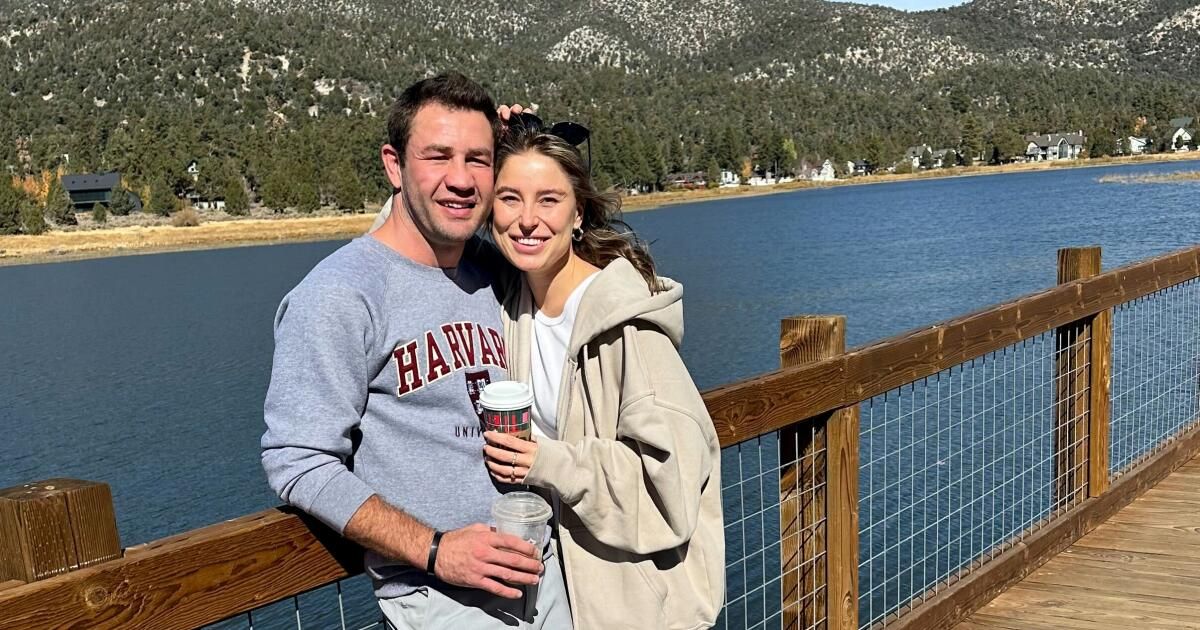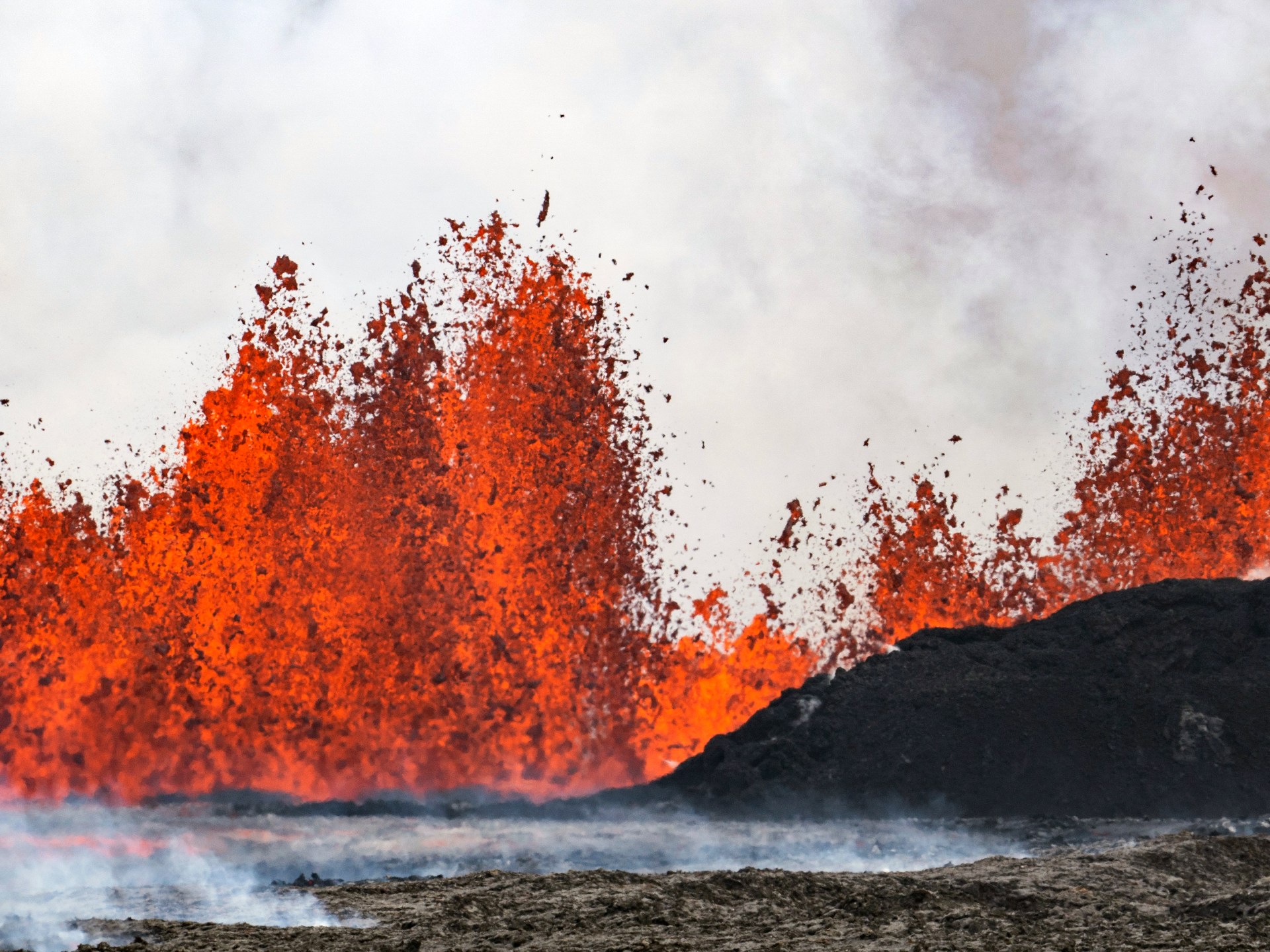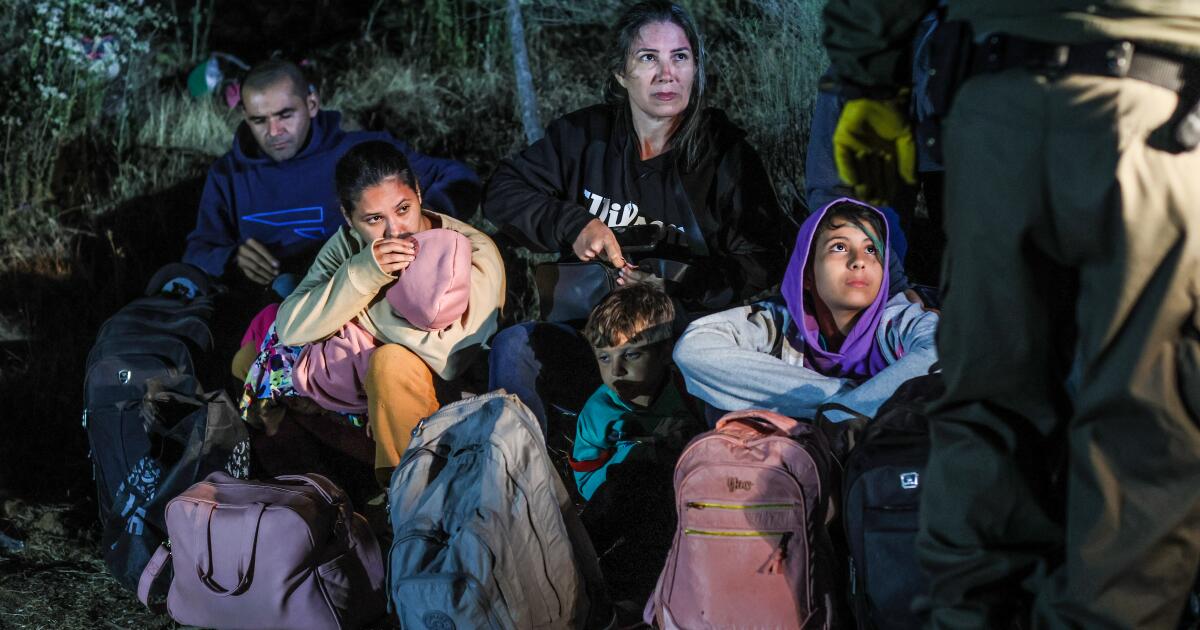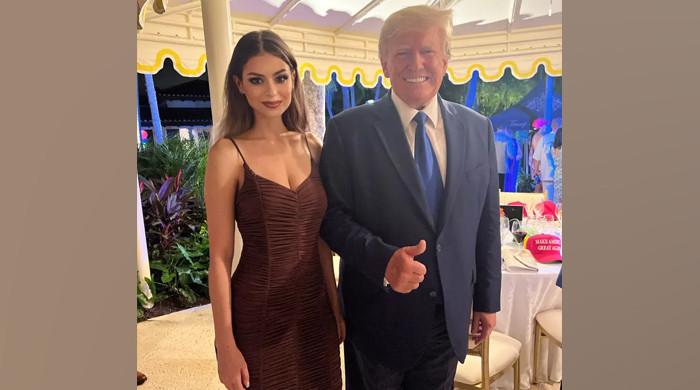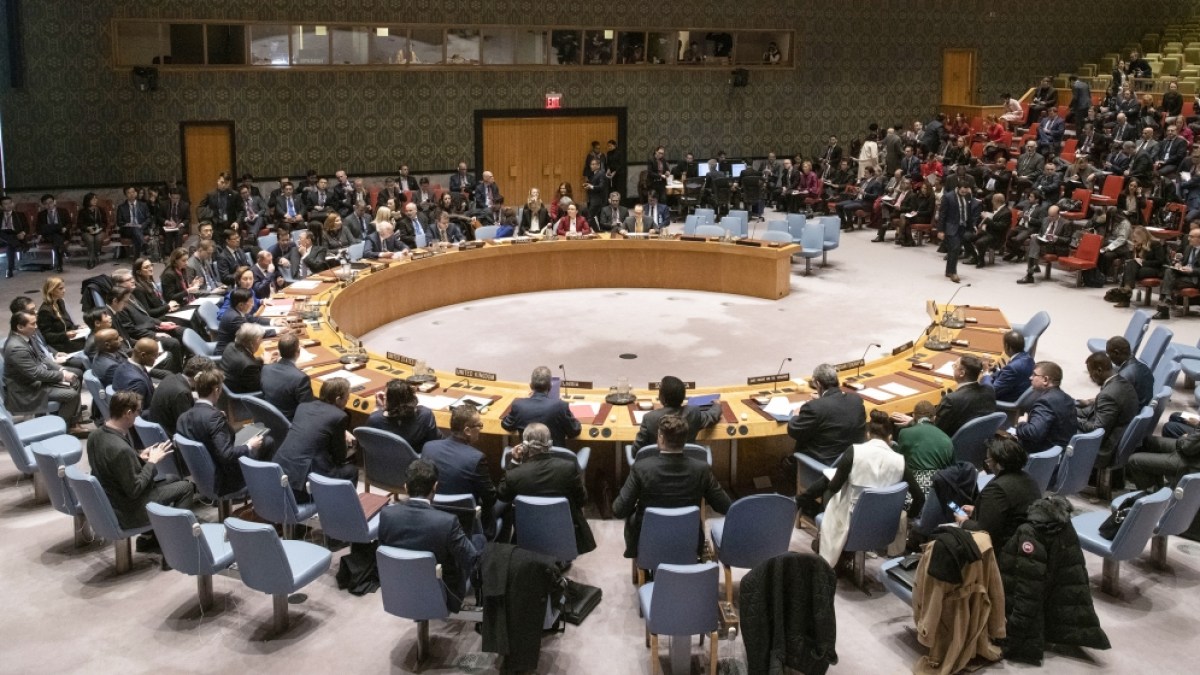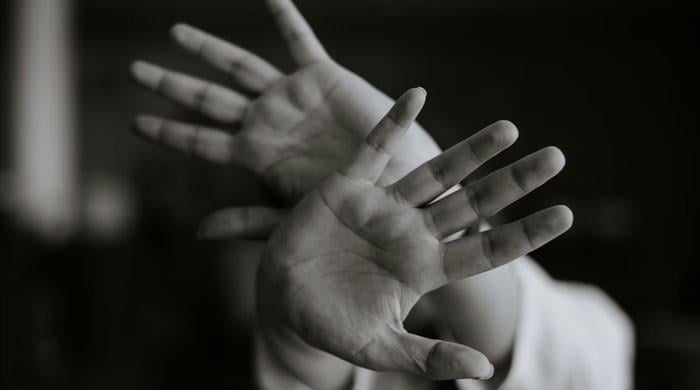Chris Van Heerden was nervous because his girlfriend was traveling back to Russia to see the family she missed so much.
“I thought it would be dangerous for her to go, with everything that was going on with the war in Ukraine, but she assured me that she was Russian and that everything would be fine,” said Van Heerden, who lived with his girlfriend in West Los Angeles. . “So for her birthday in December, I bought her a ticket. She was very excited. Now I'm hitting myself in the head for it.”
He's waiting for news about Ksenia Karelina, who is being held in Russia on charges of treason, apparently over a donation to a New York-based charity for Ukraine, which is struggling to fight off a Russian invasion.
The dual American-Russian citizen, who worked for years as a beautician at a Beverly Hills spa, has a hearing Thursday, according to Russian state media, but is expected to remain in custody for months.
Van Heerden, a professional boxer also known as “The Heat,” said he was “struggling to understand how Ksenia left and worried about when she would return.”
“I have spoken with the State Department. “I’ve talked to everyone I can,” said Van Heerden, 36. “We're trying everything.”
Upon her arrival in Russia on Jan. 2, Van Heerden said, Karelina faced hours of interrogation by Russian authorities who confiscated her phone. He said she kept in touch by sending messages to Karelina on her mother's phone. Authorities demanded that Karelina remain in Yekaterinburg, where her family lived, and told her to communicate weekly with Russia's security agency, the Federal Security Service, Van Heerden said.
“But she felt that everything was going to be positive and that her phone would be released soon,” he said.
Ksenia Karelina, a dual American and Russian citizen, traveled to Russia to visit her younger sister, parents and grandmother in Yekaterinburg.
(Courtesy of Eleonora Srebroski)
The two stayed in regular contact until the evening of January 26 (January 27 in Russia) when Karelina said she was about to leave her family home to meet with government officials to get her phone back. Instead, she said, she learned that she never returned.
Russian state media reported Karelina's arrest on February 20, when a statement from the Federal Security Service, known as FSB, said a woman from Los Angeles was “proactively raising funds in the interests of one of the Ukrainian organizations, which were subsequently used to purchase tactical medical supplies, equipment, weapons and ammunition of the Armed Forces of Ukraine.”
Independent media and the woman's associates in the United States identified her as Karelina, who is also called Ksenia Khavana, her married name before the divorce.
Karelina, 32, was arrested in Yekaterinburg, a city of 1.5 million people east of the Ural Mountains, where she grew up before immigrating to Maryland more than a decade ago. In 2015, the amateur dancer moved to Los Angeles. She became a US citizen in 2021 and posted photos on the Russian social media platform VK of herself smiling in celebration next to American flags. Her profile on the platform says that she graduated from the Ural Federal University in Yekaterinburg and studied at the University of Maryland, Baltimore.
Eleonora Srebroski, a Russian American who lives in the Baltimore area, said she hoped for a quick release of Karelina, her former daughter-in-law, but the odds were not in her favor.
“In Russia, there is little chance that she will receive fair treatment, especially when it comes to this Ukraine matter that she is accused of,” said Srebroski, who remained close to Karelina after the latter's marriage ended in 2015. “She is a difficult person not to love. She has many friends of all kinds.”
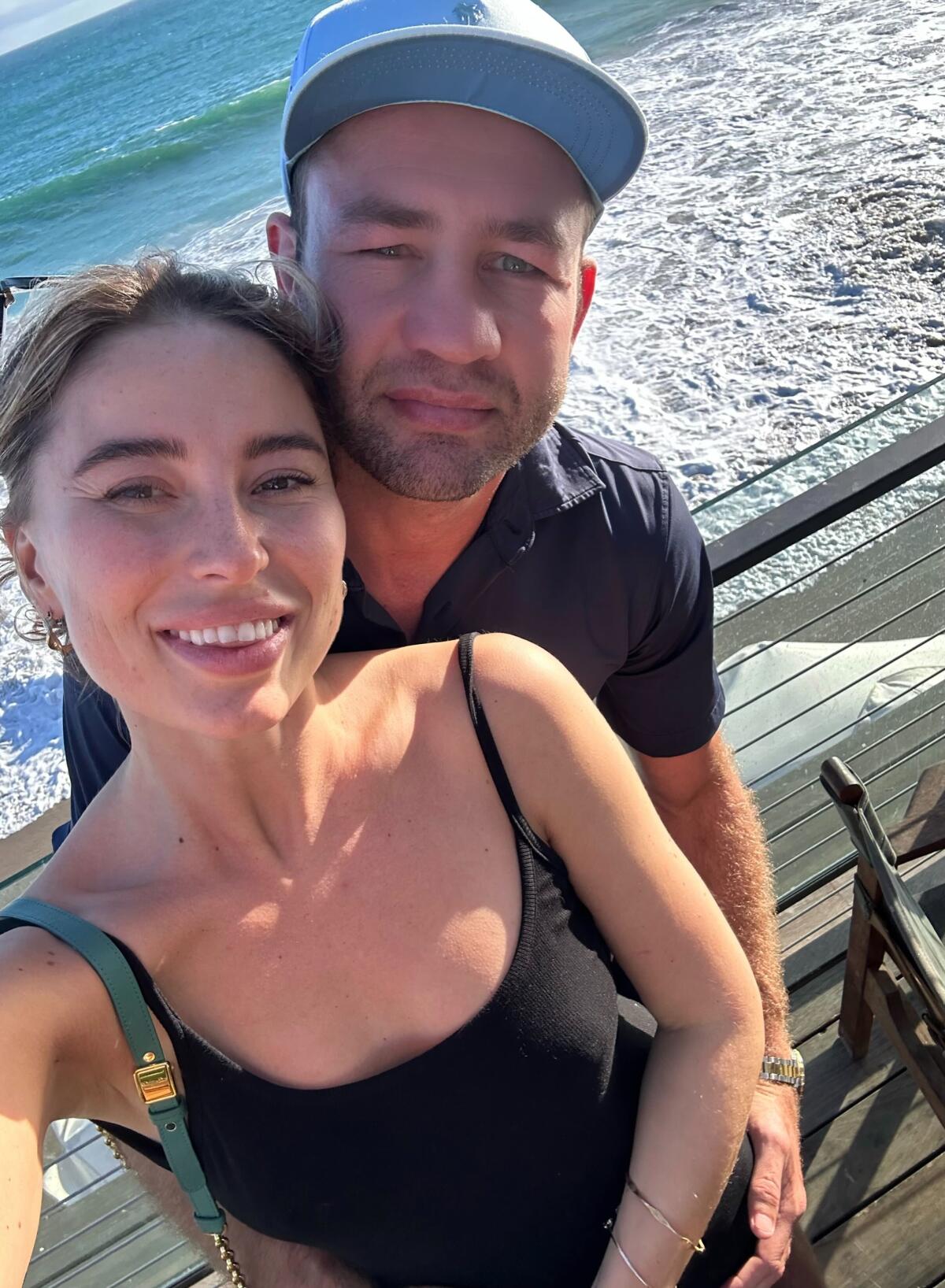
Chris Van Heerden, appearing with Ksenia Karelina in Malibu, said he was “struggling to understand how Ksenia left and worried about when she would return.”
(Courtesy of Chris Van Heerden)
A group of Russian lawyers tracking arrests, Perviy Otdelo First Department, said Russia accused Karelina of donating $51.80 to Razom for Ukraine. The New York-based organization, which translates as Together for Ukraine, works on a variety of issues, including humanitarian aid and disaster relief. Razom said in a statement that he was “horrified” by the arrest.
According to Russian media, Karelina was originally scheduled for a hearing last week, but it was delayed because she did not have a lawyer; The hearing is now set for Thursday. Russian media said she is expected to remain in pretrial detention until at least April.
Experts believe his detention will last much longer.
“It is very unlikely that his release will even be discussed at this time. The Americans won't propose it yet and the Russians probably won't entertain discussing it until there's a trial,” said Brian D. Taylor, a political science professor at Syracuse University who studies Russian politics and U.S.-Russian relations. “But we should dispense with any idea of rule of law in Russia, especially in a case like this.”
In addition to providing financial support to Ukraine, the FSB alleges that Karelina had been part of “public actions in support of the kyiv regime” while in the United States.
After invading Ukraine in 2022, Russia clamped down on dissent. Last year, Russian President Vladimir Putin signed a decree establishing life imprisonment as the maximum penalty for treason. On Tuesday, the co-chairman of a Nobel Peace Prize-winning human rights group was sentenced to two and a half years in prison for criticizing Russia's war.
For Putin, Taylor said, “Americans are chips that must be negotiated with to achieve his goals, one of which is bringing home Russians arrested abroad.”
This has been the case for other high-profile Americans detained in Russia. In 2022, professional basketball player Brittney Griner was detained for 10 months and then traded for Viktor Bout, a Russian arms dealer imprisoned in the US. Griner was in Russia for a tournament when authorities arrested her on charges of being in possession of vaping cartridges with cannabis. .
Another American, Paul Whelan, has been in a Russian prison for five years. The United States denied Russian accusations that the former US Navy and corporate security director was a spy. In March, Russia also arrested a Wall Street Journal journalist. Evan Gershkovich on espionage charges that the United States says are false.
Unlike Griner, Whelan and Gershkovich, who did not have Russian citizenship, Karelina's legal status as a dual citizen complicates her case.
“They can only treat her like a Russian, and it seems they have done that so far,” Taylor said.
The State Department requested consular access to Karelina due to her American citizenship, but was denied.
According to Van Heerden, Karelina flew to Russia with her Russian passport after a stopover in Istanbul, where the couple celebrated the New Year together. Van Heerden returned to the United States while Karelina continued her journey.
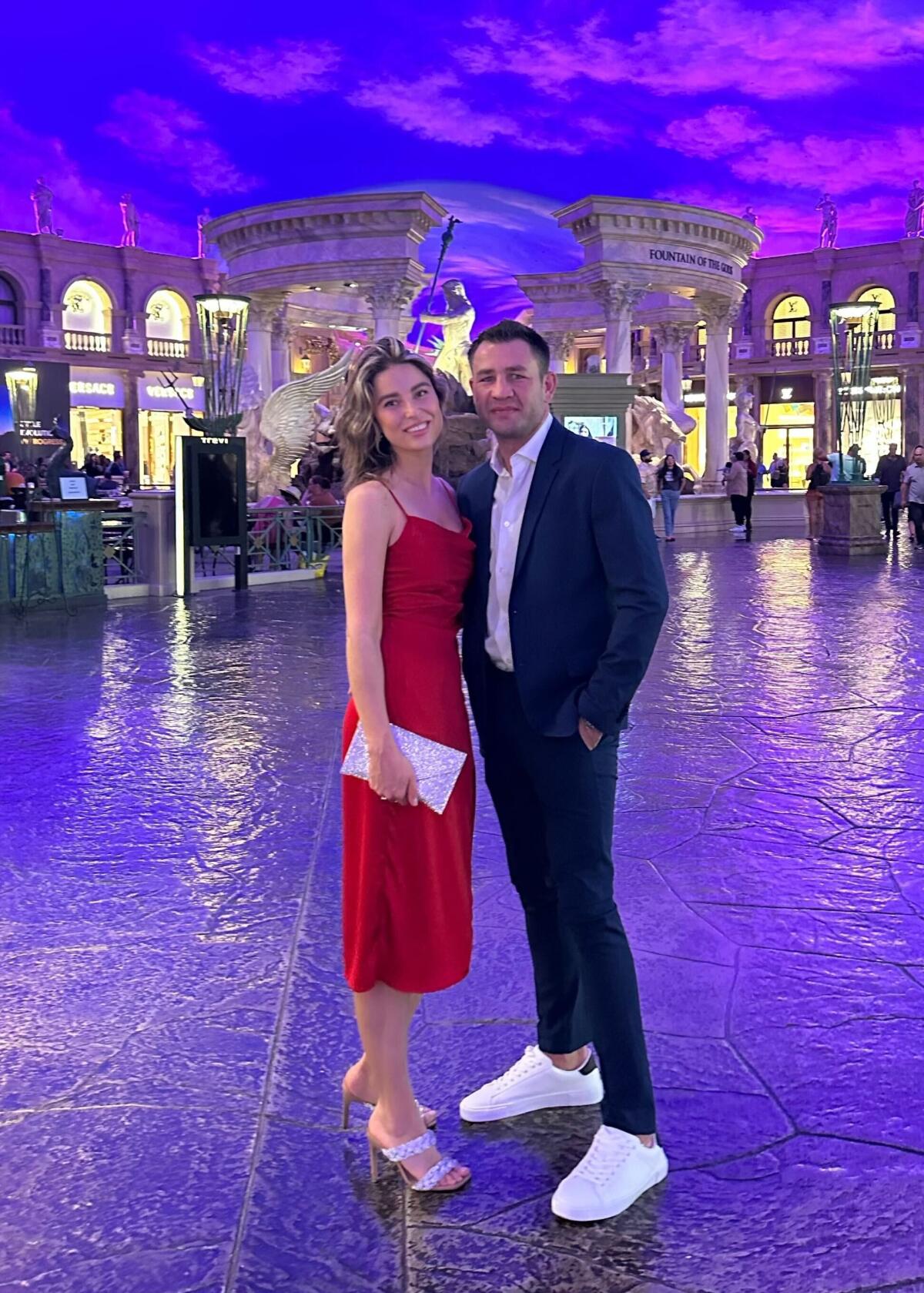
Ksenia Karelina, left, with Chris Van Heerden, is scheduled for a hearing in Russia on Thursday, Russian media reports.
(Courtesy of Chris Van Heerden)
“She had been talking about how much she missed her family and wanted to visit them,” he said.
Van Heerden said Karelina was not political and avoided talking about the war in Ukraine because it was a “sensitive topic” and she was “very proud to be Russian.”
“I had love and friends from everywhere and respect for everyone,” he said. “I think she made a donation. That's true. But she is not an activist.”
Van Heerden said he received a letter from his girlfriend last week. Written in Russian, it was sent to one of his friends in Yekaterinburg, who scanned an image to text it to Van Heerden.
“I had to use a translator to read it,” said Van Heerden, who is South African. “In it, she keeps saying, 'I'm sorry for putting you in this situation.' I'm sorry for the pain.' She hopes one day. So [the next day] “She has no hope.”

